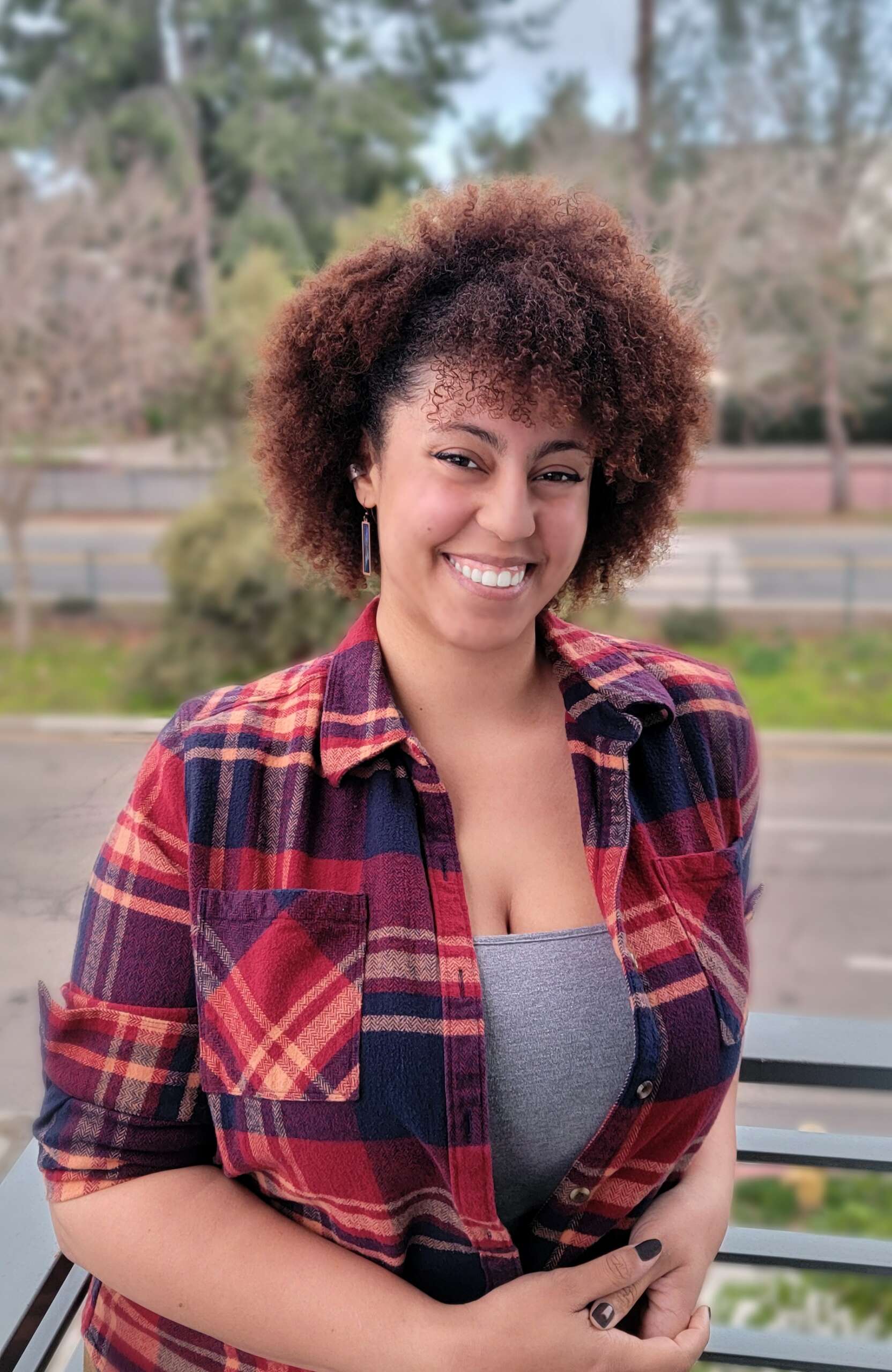Alright – so today we’ve got the honor of introducing you to Jess Cuffe. We think you’ll enjoy our conversation, we’ve shared it below.
Hi Jess, thanks for joining us today. Can you open up about a risk you’ve taken – what it was like taking that risk, why you took the risk and how it turned out?
One of the biggest risks I’ve taken in my career was one that came from failure, more or less.
I’d been given the chance to come and work on freelance character designs at Marvel Animation Studios. Not quite the same Marvel Animation we have today- this was a separate studio headed by Eric Radomski, Ken Ito and Howard Schwartz. I’d gotten the chance to meet Ken and Howard up at the Spring Show at the Academy of Art University in San Francisco. They’d invited me to come and tour the studio, meet folks working on different shows there like Avengers Assemble and Ultimate Spider-Man, and offered me the chance to help out with character design on a freelance basis. I’d said yes but what I’d really wanted to do was storyboard. After a short time helping with designs on Avengers Assemble, I was given that chance.
I was so excited. It was an art test for a page of script that was from a previously aired episode of Avengers. I’d remembered that episode and how it had played out, so I knew I’d wanted to do something different. I completed the test in the allotted time, used the formatting tools they’d asked for and felt confident about my boards. But after turning them in, I was told that the boards I had submitted weren’t quite ‘pushed enough’. Some shots felt repeated, I’d made a couple of mistakes with my film language, and the characters had felt stiff in their acting. I asked if I could come in and maybe get a bit more feed back on my work and they said ‘sure’.
I came in to talk with Jeff Allen, the supervising director on Avengers Assemble, and Phil Pignotti, the supervising director on Ultimate Spider-Man. They gave me really great advice on my work, how to best build shots for action/adventure shows, and how to push my acting choices for the characters even more than I had. It was a really great talk and, even though I’d been told that my test hadn’t been quite up to snuff, I felt really inspired by what I’d learned.
I was visiting with my now-husband’s family in the LA area and went back to their home to think on the day and my test. Then I’d decided to send an email and ask, ‘if it’s alright, can I do my test again- get the chance to apply these notes and send them to you guys for feedback?’. I got an email back saying, ‘it’s your decision if you’d like to apply the notes, [we’re] sure Jeff and Phil would love to see your improvements’.
I got right to work. I used the family computer and redid my entire sequence from scratch in Photoshop. I took everyone’s advice to heart and ended up doubling the amount of storyboards I previously had. I’d re-shot camera angles, gave breathing room for some big action and pushed the character acting as far as I could. I wanted to make this chance count and show people that I really respected that I had potential in this field.
When I finally finished and submitted the work, I felt tired but really satisfied and confident in what I’d submitted. It wasn’t the same confidence as the first time; this time felt different. The first time felt like I was having fun with material I was passionate about but I was trying to do something purposefully different than what I’d seen before and I’d end up focusing too hard on that. This second go around, I ended the day feeling like I’d really concentrated on the heart of the sequence, knowing I’d applied all the advice I’d received and had produced something that I was proud of. It was the very next day, around the later morning, when I got a call from Jeff Allen. I was really looking forward to hearing his feedback, but what I heard instead was ‘the boards you turned in were amazing, what a difference. How would you like to be a storyboard revisionist with us on Avengers?’. I’m sure that my excitement was pretty evident over the phone. I said to Jeff, ‘absolutely’.
Like many artists in the industry, I’ve had my share of failures as well as successes. But every time I think of this moment when I did fail but took the risk to try again, I’m reminded of what can be accomplished when you’re bold enough to ask for a second chance.
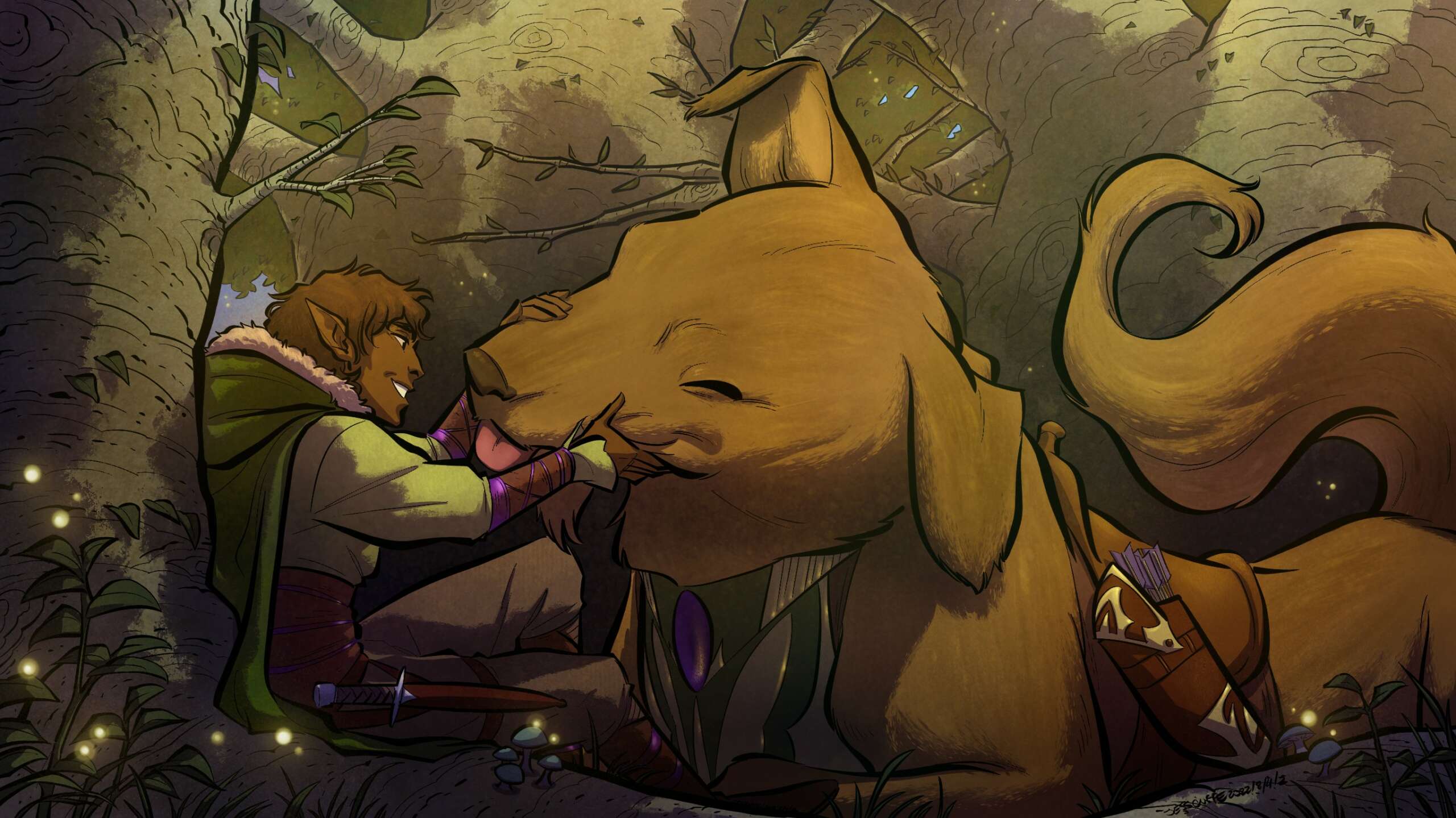
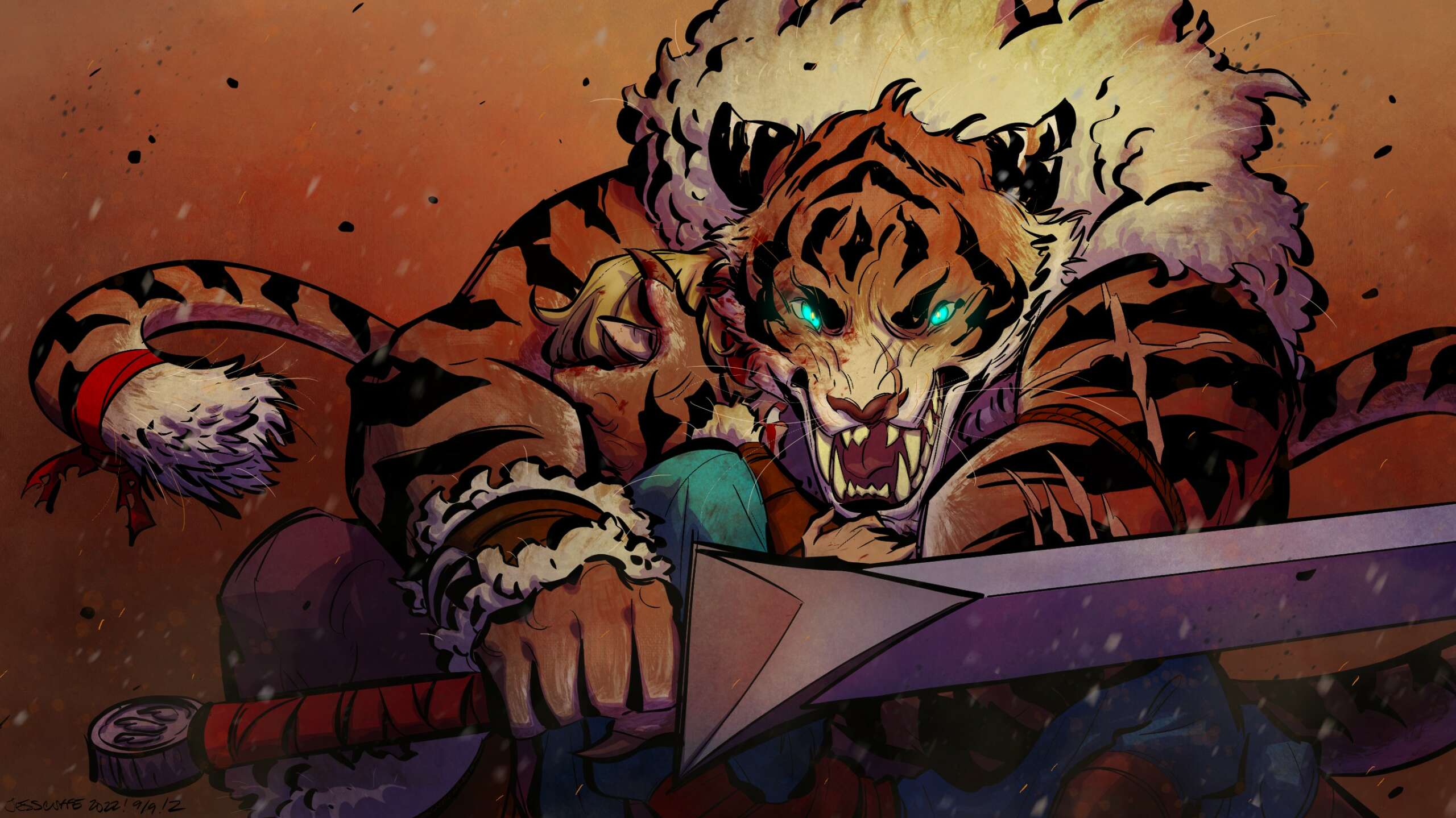
Jess, love having you share your insights with us. Before we ask you more questions, maybe you can take a moment to introduce yourself to our readers who might have missed our earlier conversations?
I’m Jess Cuffe- a storyboard artist and episodic director for tv and film working in Los Angeles, CA. I’ve been in the industry since 2015, after graduating from the Academy of Art University in San Francisco. I’ve been involved with all kinds of shows- from Avengers Assemble and Marvel’s Spider-Man to Legend of Vox Machina, Invincible, and most recently Gremlins: Secrets of the Mogwai. Everything from superhero action to horror-style mysteries to comedic adventures, I’ve been able to build my skills by working with many different studios and production teams.
As a director and board artist, a lot of my work falls under ‘pre-production’. This means I’m often one of the first artists on a project that helps to interpret the story from script into a visual format. With each script I’m given, I’m tasked with figuring out the sequence of character acting (with both dialogue and body language), staging (where I determine where characters or objects are in a set and how they move through it), composition (how the camera frames the action being portrayed), and many more things that all add up to what will eventually be seen on screen. With me being so early in the process, many people won’t see my drawings directly. However, my storyboards as well as the boards of fellow artists that I work with on a project will be used to give clear direction to the animators.
I love being able to give expression and depth to the acting of different characters, even through action moments. It’s a skill that I’m absolutely the most proud of and still continue to develop as I learn from each new show or production I’m on.
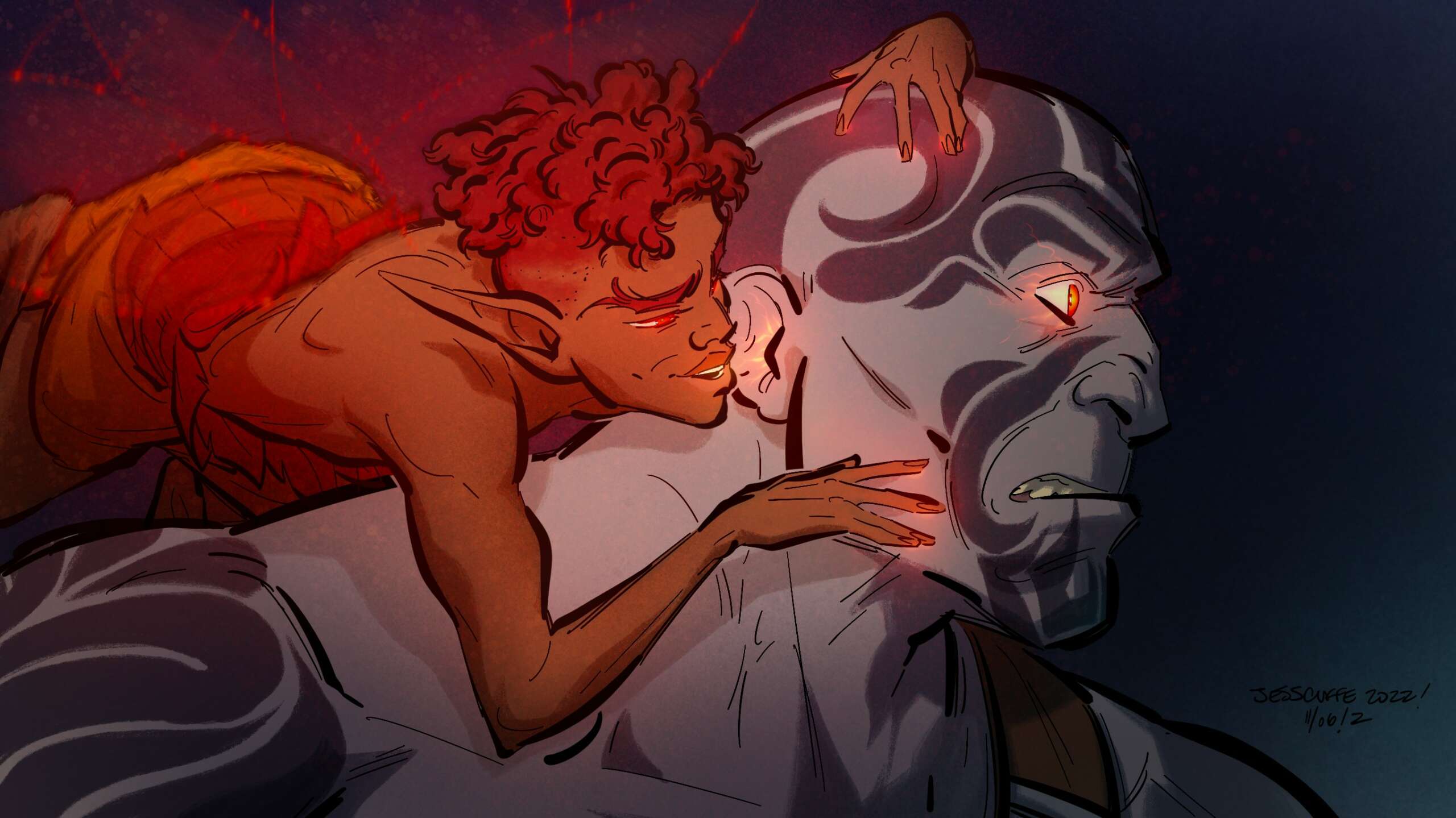
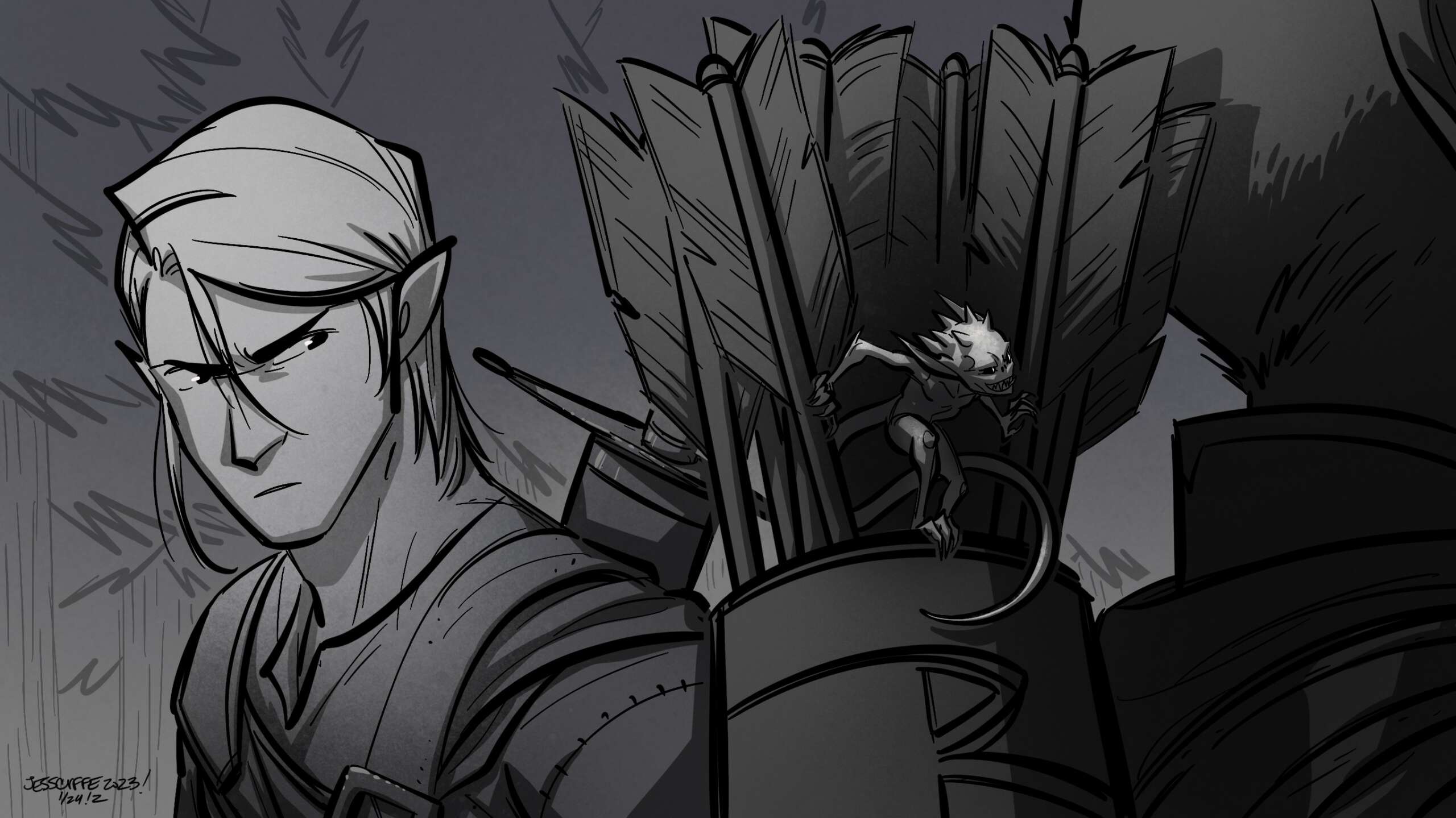
Are there any resources you wish you knew about earlier in your creative journey?
Yes, I wish I’d had more direct business advice available to me when I first started out.
I think that’s a common occurrence to see in folks first starting out in any creative field where they aren’t able to properly value themselves as a professional. I was in the same boat in the beginning of my career, but I was very fortunate enough to connect with more seasoned folks in the industry who taught me about valuing myself as a professional artist, both ethics wise and financially.
Like most, I started out with the mindset of ‘yes, I should have a job I enjoy and be able to provide for myself’ (as any person in a trade profession would) but I didn’t have experience or guidance on the skills to negotiate what I would need to accomplish that in entertainment. I didn’t know I was even supposed to. I’d simply thought I would show my qualifications and someone would tell me what I’m worth. But it doesn’t work like that- even with all the projects I’ve been on, that have been wonderful to me, required that *I* set the standard of what I’m worth. I’m the one that needs to research and assess my value as an artist because it is my responsibility, not someone else’s.
Studios are first and foremost businesses that are constantly negotiating to spend their budgets the way they believe best benefits them. And I, like all other creatives in the industry, need to be wise about that fact and hold firm on what my value is and what will benefit me in turn. And standing up for yourself in a business fashion doesn’t often come naturally to artists.
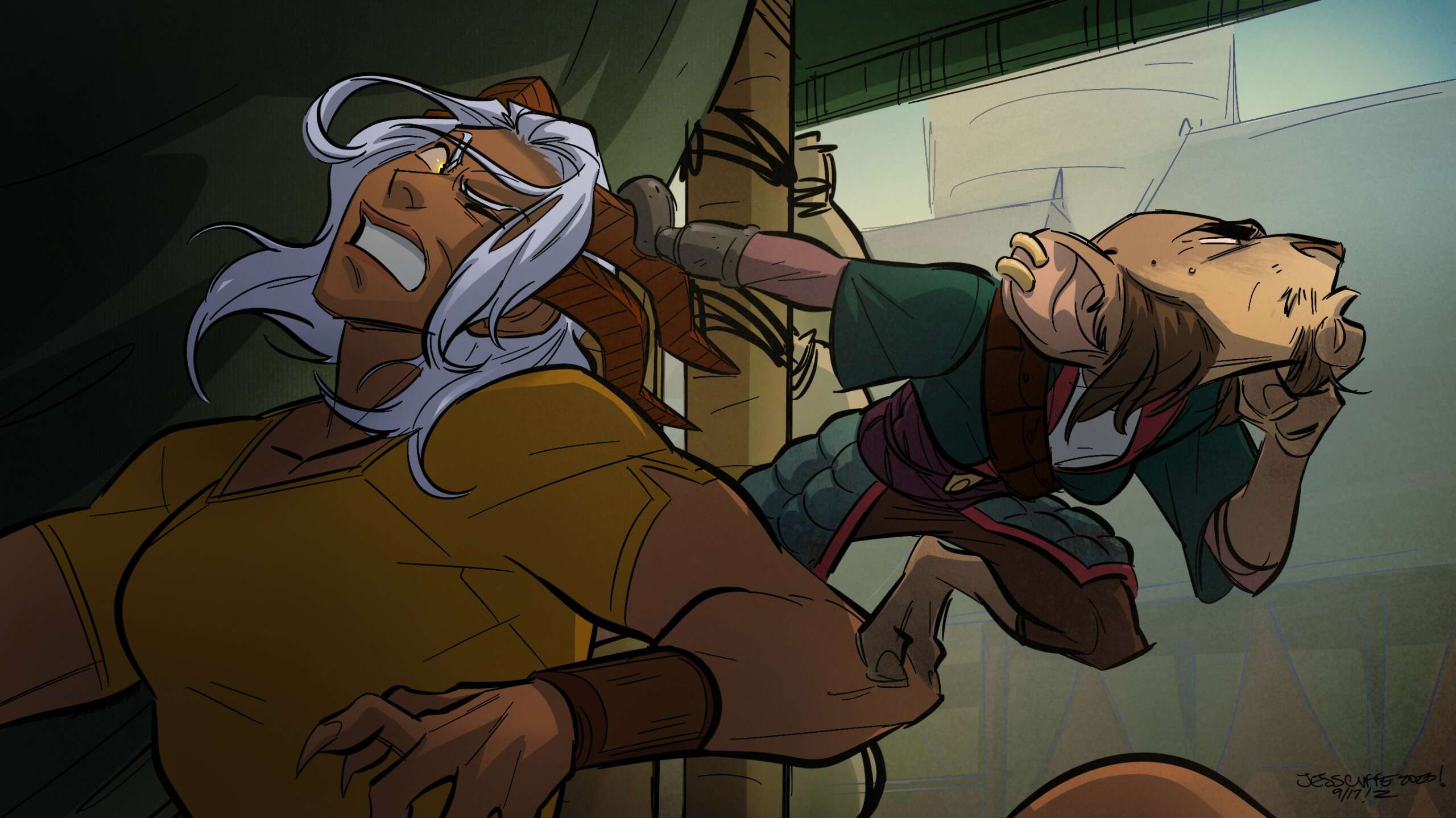
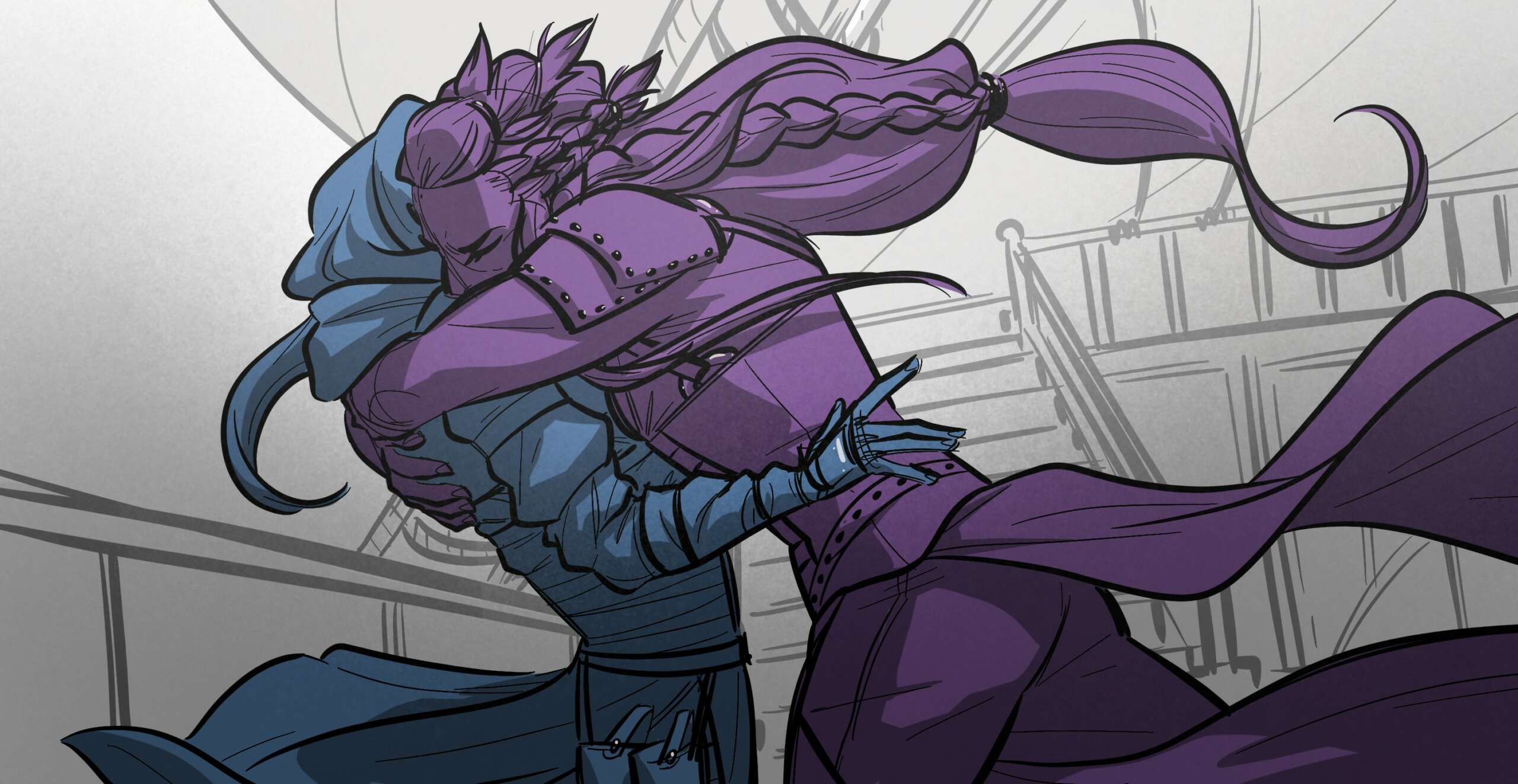
For you, what’s the most rewarding aspect of being a creative?
I think it’s hearing what the audience thinks of the story that I’ve helped create. ‘Cause ultimately, that’s who I’m wanting to convey ideas to.
I love hearing how friends, family or anyone who sees my work thought of a sequence I had helped to craft- the points that they’d understood, the things they’d interpreted that maybe I hadn’t realized were there, and even the parts where they’d wanted to see more or something different. I just love hearing that kind of input because, from my perspective, someone took the time to watch and appreciate my work and they’d earnestly felt something from it enough to vocalize those feelings. That’s the magic for me.
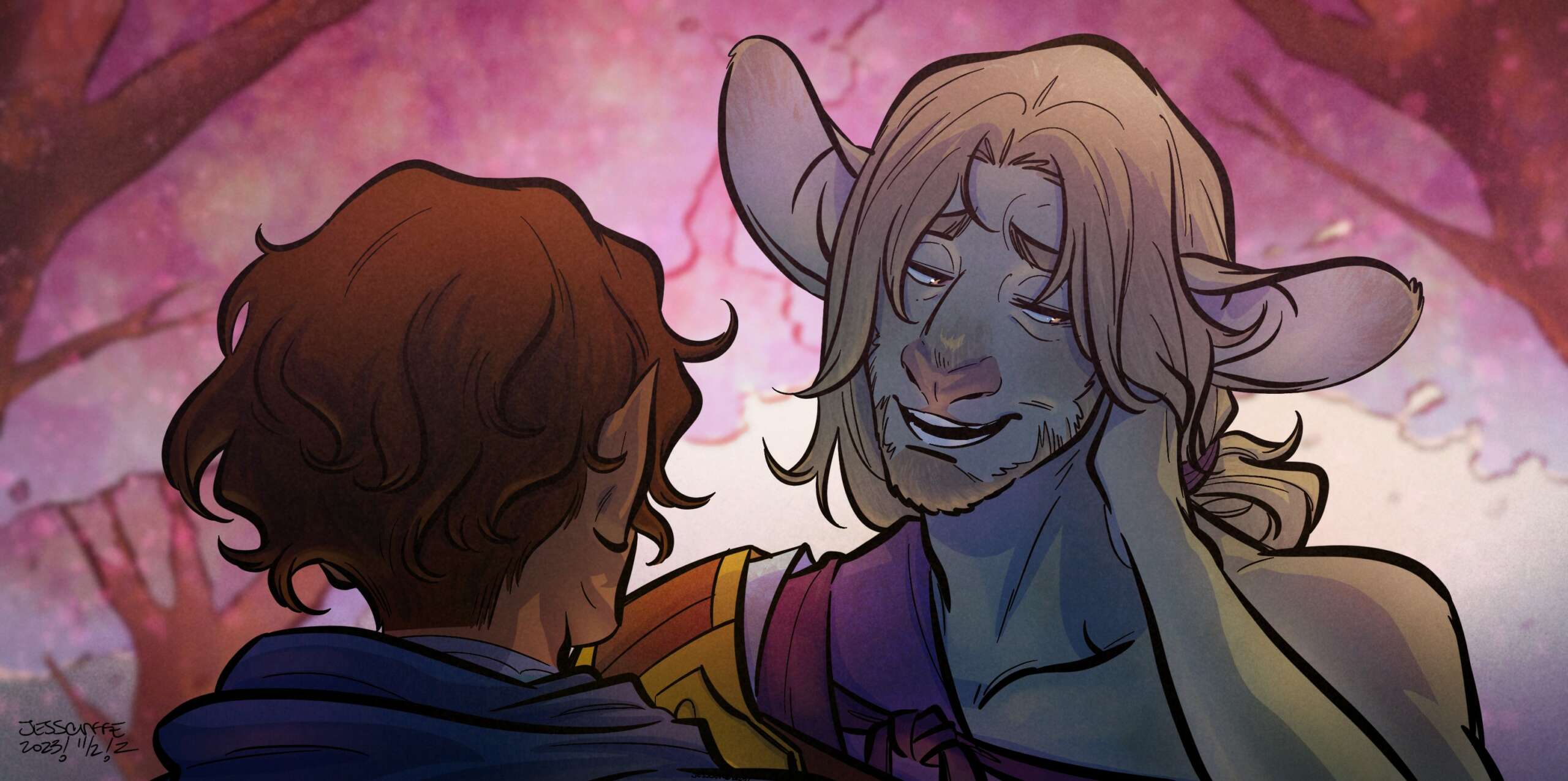
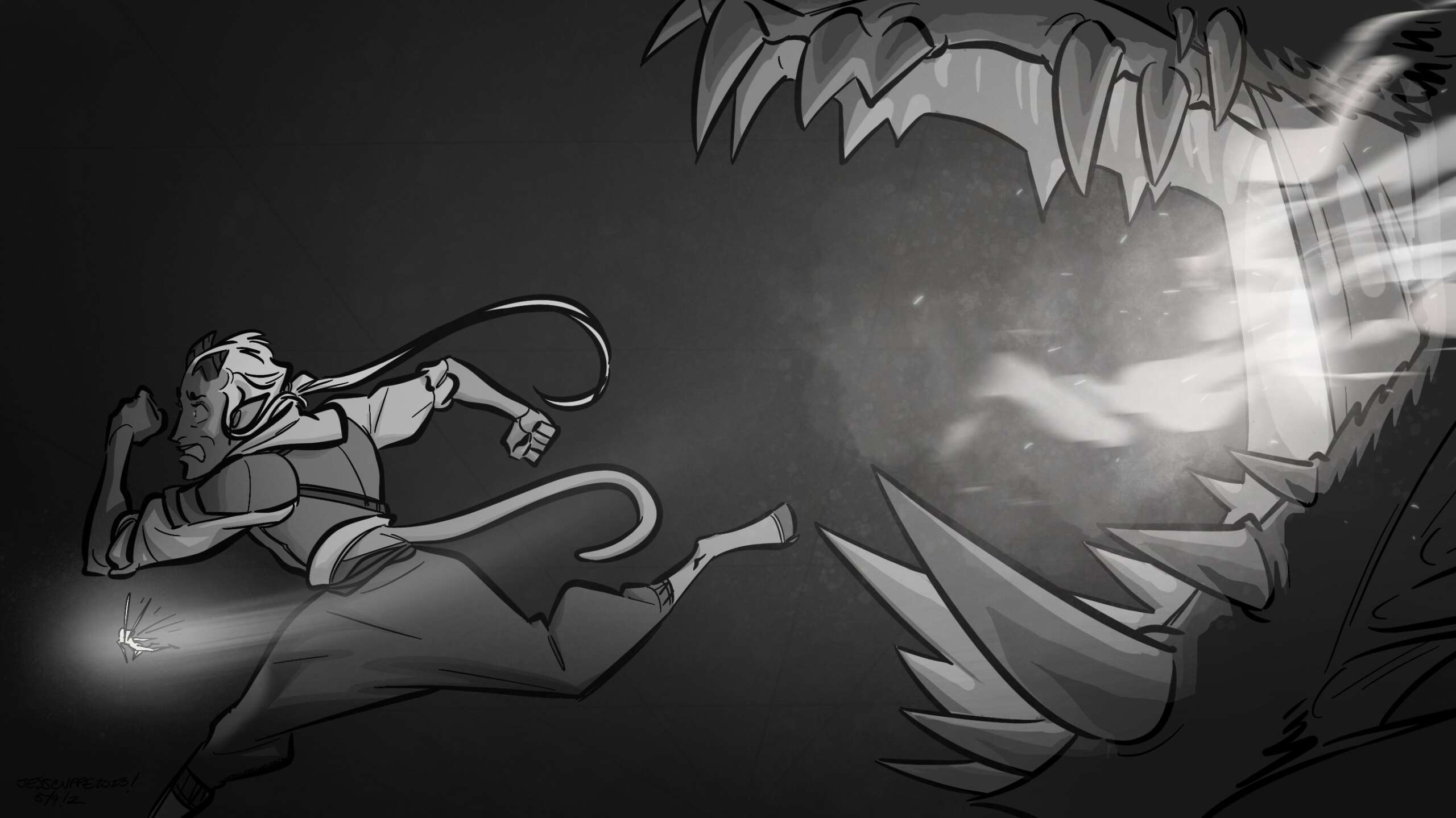
Contact Info:
- Website: https://www.jesscuffeart.com/
- Instagram: https://www.instagram.com/evienchantress/
- Linkedin: www.linkedin.com/in/jess-cuffe-9b134b25
- Twitter: https://twitter.com/EviEnchantress


